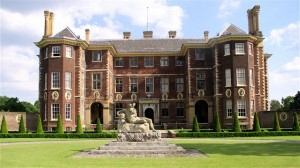 The IHR is delighted to announce the launch of this new course, which provides an introduction to how archival research findings on historic gardens can contribute to garden restoration, conservation and management. Taught on Tuesday mornings (11.00-13.00), Historic Gardens: Research in Action adopts a case-study approach to the exploration of these relationships through a combination of lectures, seminar-based discussions and site visits.
The IHR is delighted to announce the launch of this new course, which provides an introduction to how archival research findings on historic gardens can contribute to garden restoration, conservation and management. Taught on Tuesday mornings (11.00-13.00), Historic Gardens: Research in Action adopts a case-study approach to the exploration of these relationships through a combination of lectures, seminar-based discussions and site visits.
Course details
Researching the history of a garden or landscape is an absorbing and exciting activity that draws together documentation, maps, paintings, horticulture and other information to tell the story of the garden’s development and the people involved in its creation. The results will be a well-referenced report that describes chronological design overlays and planting and may identify the garden as of significant historic interest. This short course takes researching a garden’s history a stage further by a consideration of how these findings can contribute to a garden’s restoration, conservation and management. It also provides a practical understanding of the range of methodologies currently employed in the identification, protection and care of historic parks and gardens in the UK.
Examination of these issues is made through case studies chosen as examples of gardens restored to different historic periods and under different types of ownership and management. Visits will be made to the seventeenth-century formal gardens at Ham House (National Trust), the eighteenth-century landscape garden at Painshill Park (Painshill Park Trust), and the early twentieth-century garden of plantsman E. A. Bowles at Myddelton House (Lee Valley Regional Park Authority). Sources of evidence for restoration and plans for garden management will be studied in both classroom sessions and with expert guides during site visits.
See here for full details, and to register
